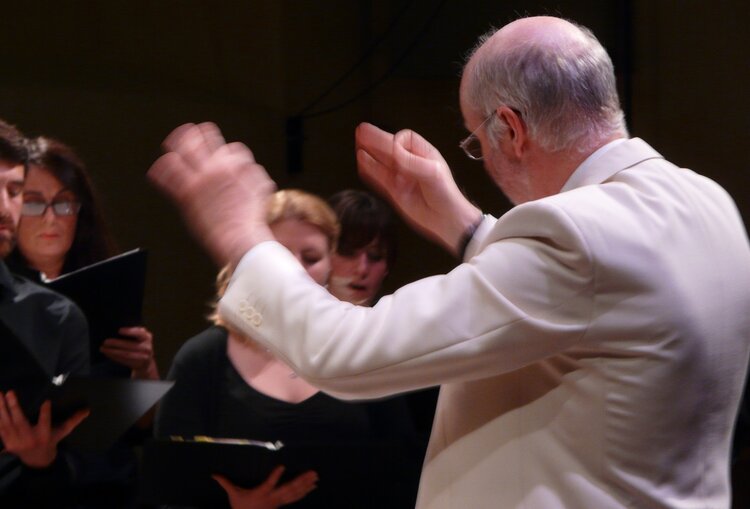
Late Music presents Micklegate Singers, Unitarian Chapel, St Saviouragte, York, December 3
LATE Music’s latest double-header – two concerts in one day on the first Saturday of autumn and winter months – welcomed the Micklegate Singers under Nicholas Carter at mid-day.
They belong under the Late Music umbrella: they established a reputation early on, under their founder-director Dennis Freeborn, for tackling new and often challenging repertoire.
This one was seasonal, entitled And There Were Shepherds…, but wisely included several Renaissance pieces alongside some 20th century favourites and others on which the ink was barely dry, the most recent being a new commission from James Else enjoying its premiere.
The Road Of Evening is a setting of Walter de la Mare’s Nod, which speaks of an old shepherd and his dog, Slumber-soon, and by inference of God tending his flock through the ages. Its Christmas message is negligible, but Else’s modal evocation of serene solitude is effective, if without focusing on any one aspect of the poetry.
Another premiere came with Absence, a setting by Joe Bates of various texts taken from William Penn’s More Fruits Of Solitude. This was the second of three pieces commissioned by the Micklegates from student composers at the University of York.
Bates’s penchant for parallel fifths is reminiscent of Vaughan Williams, although his use of two texts in conjunction, one in female voices, one in male, is certainly unusual – but it works. Humming later contributes to a sense of resolution from the conflicts of life; again, not specifically seasonal, but offering imaginative food for thought.
There were four other 21st century pieces. Bob Chilcott’s moving setting of Clive Sansom’s The Shepherd’s Carol (2000) was smoothly atmospheric, while the angular lines and bouncy rhythms of Cecilia McDowall’s Now May We Singen (2008) were the best projected of the evening.
The climax of U A Fanthorpe’s stunning poem BC – AD was not quite captured by David Bednall’s chordal setting of 2013. More effectively meditative was Alexander L’Estrange’s Epiphany Carol of the same year.
A Jonathan Dove lullaby joined other established favourites by Holst, Leighton, Poulenc and Richard Rodney Bennett, whose sensitivity to words was especially notable. The three Renaissance pieces, healthy reminders of a 500-year tradition of Christmas music, were by Palestrina, Lassus and Dering, all keenly negotiated.
The Micklegates tended to go easy on their diction in slower numbers, but in general we should rejoice that they are back from lockdown in fine fettle.
Review by Martin Dreyer
